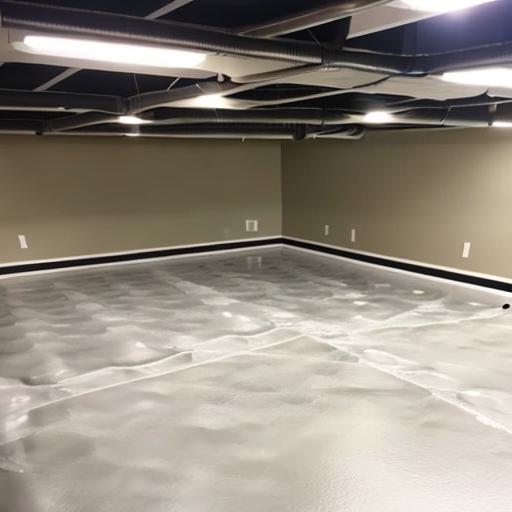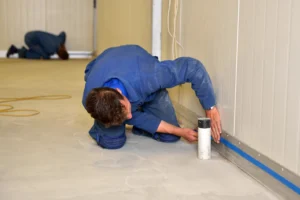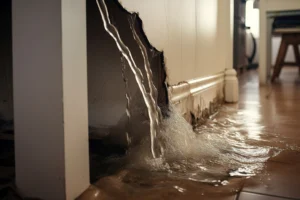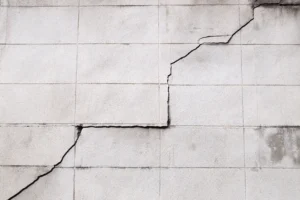n unfinished basement floor that is always wet can make it difficult to store items or use the area for a living space. It can also create a favorable environment for mold growth and bacteria, causing a health hazard to its occupants. Since basements are below-ground structures, they are always vulnerable to fluctuations in the water-table level. The soil encasing a basement can become saturated and apply significant pressure on the floors and walls of the basement. The pressure exerted by underground water can force it to leak via small gaps at the base wall or seep through the porous masonry of the basement floor. In today’s article, we will be discussing ways how to waterproof an unfinished basement floor.
3 Major approaches to waterproofing an unfinished basement
- Sealants and Epoxy injections
Epoxy injections and sealants are often considered band-aid fixes because they don’t offer a permanent solution to the problem. Homeowners who explore this method try to work with an affordable budget before they invest in a solid waterproofing system. In this method, we apply sealants and epoxy injections to create bonded coverings and impermeable coatings to the interior surface of the basement. This process holds back water and prevents it from seeping through the basement floor or wall structures.

Make sure that your floors are waterproofed in the basement
- Internal waterproofing – using a cavity drain membrane
One of the best options for most homes is to waterproof a basement from the inside. The process involves digging a trench along the interior perimeter of the basement floor and then using a drain and sump pump to extract the water to the exterior of a home. Cavity drain membranes are molded from high-density polyethylene, which makes them strong and flexible. Membranes with 20 mm protrusions are installed across a concrete floor to collect water seeping in through the slab. Another alternative is to use baseline cavity membranes which provide a functional barrier and can collect substantial volumes of water from the basement.
- External waterproofing
Waterproofing a basement foundation from the exterior holds back water in the surrounding soil and prevents it from seeping into the basement. The process involves installing a trench drain underground or the use of membranes and polymers to coat the exterior of the walls. It could also involve a combination of the two methods to create a solid barrier against water intrusion from the outside. Some excavation and landscaping may be done to ensure water slopes away from the foundation of your home. Other areas that need to be checked include the gutters and drain pipes to ensure no stagnant water gets close to the foundation.
How to install a drainage pipe in an unfinished basement floor
The major reason why water leaks through the basement floor are because it doesn’t have elsewhere to go. Installing drainage pipes relieves the hydrostatic pressure and gives the underground water an easier route to take. This method starts by saw cutting around the concrete floor of the inside perimeter. You need to dig out at least 12 inches of dirt all around and replace it with 3 inches of crushed rock. The next step is to install the drainage pipe on top of the crushed rock, then fill up the remaining space with crushed rock to the bottom of an existing concrete floor.
Choose one corner of the basement where you can tie the drainage pipe to a sump pump bucket that extracts water outside. The drainage pipe and crushed rock will catch any water coming from under the basement floor or between the concrete walls and footings. The final step will be to pour concrete on top of the crushed rock to level it up with the height of the existing floor.
Reasons to hire a professional to waterproof your basement
Handling basement leakage issues can be a headache for many homeowners, especially when you don’t know what to do or whom to ask for help. Professional contractors have the required knowledge and experience for basement waterproofing. Most professionals are fully licensed and insured for any risks they might encounter during the project as it is labor-intensive and time-consuming. Also, you get to save money in the long run because when the task is done right the first time, you get long-lasting waterproofing results. Reputable professionals will offer quality waterproofing techniques and advise on the best materials to give high-quality results.
Structural issues such as a leaking basement floor are not only health hazards but can also cause serious property damage. Using sealants and epoxy injections might seem viable for a DIY project but doesn’t hold in the long term. Hiring a professional to waterproof your basement provides patented, safe, and effective results that last for a lifetime.



